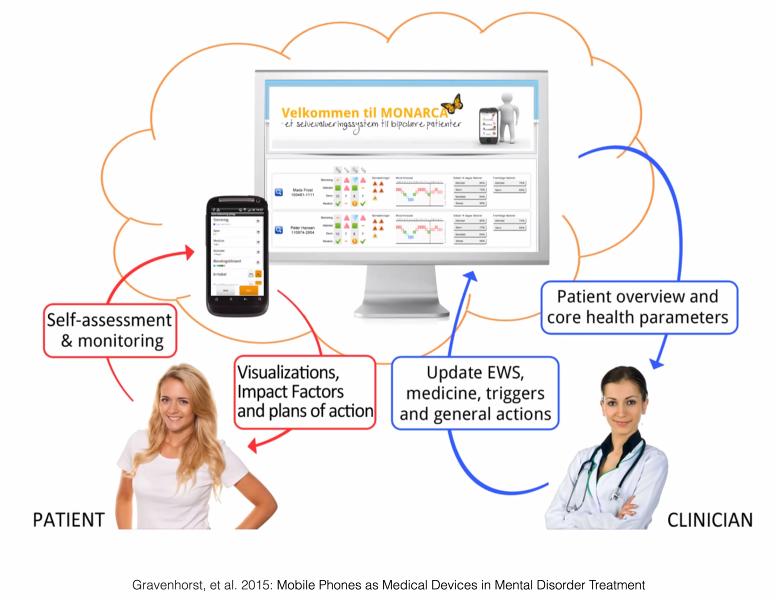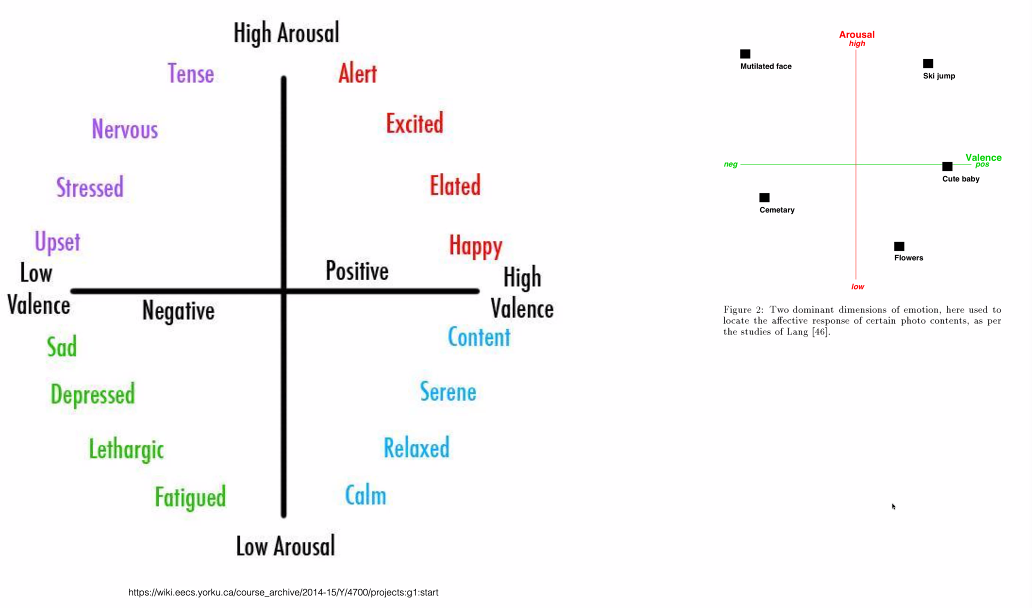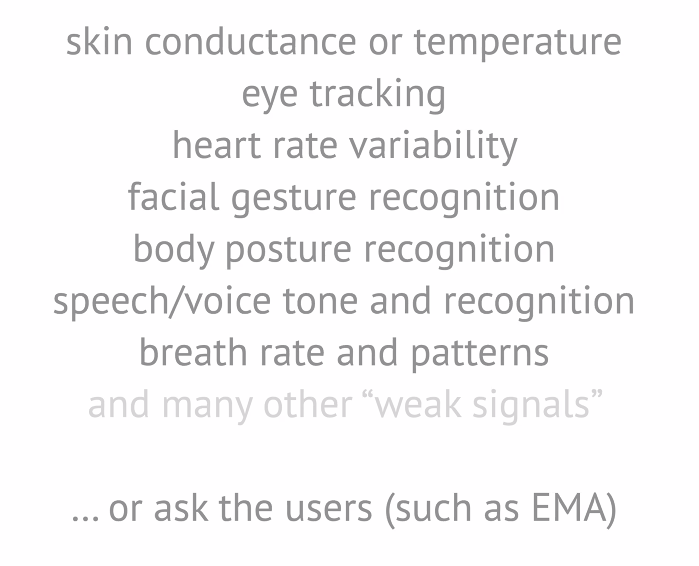- https://www.interaction-design.org/literature/book/the-glossary-of-human-computer-interaction/multimodal-affective-computing
- https://www.interaction-design.org/literature/book/the-encyclopedia-of-human-computer-interaction-2nd-ed/affective-computing
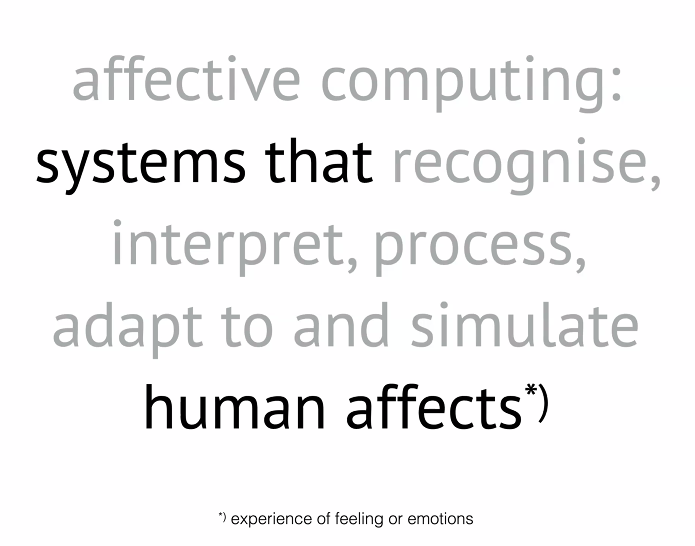
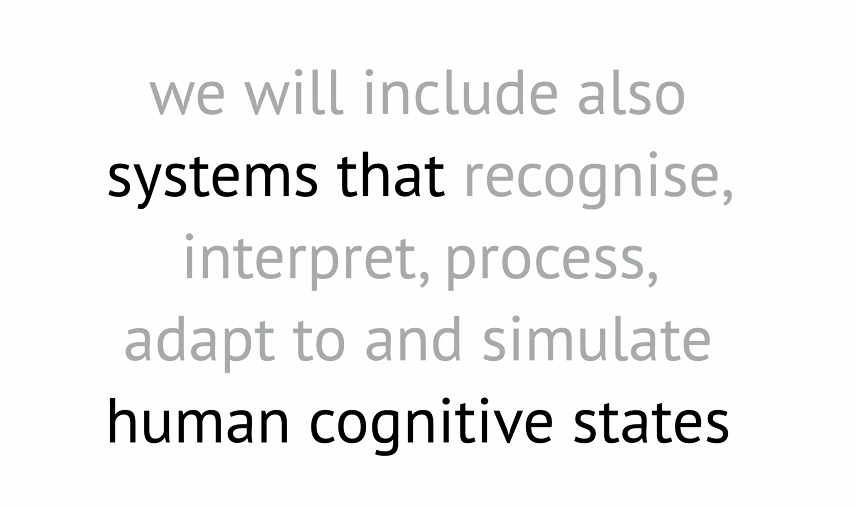
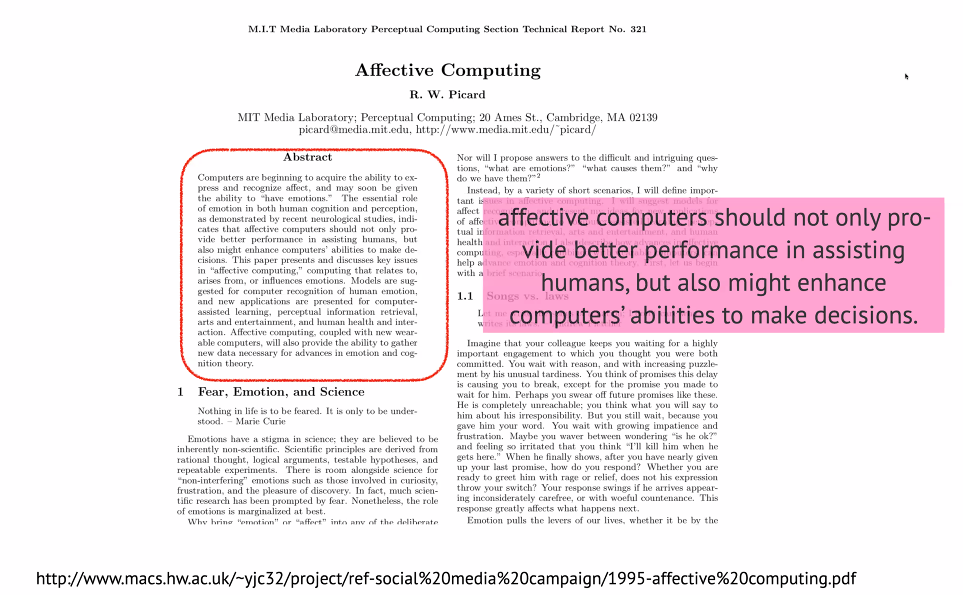
Paradigm
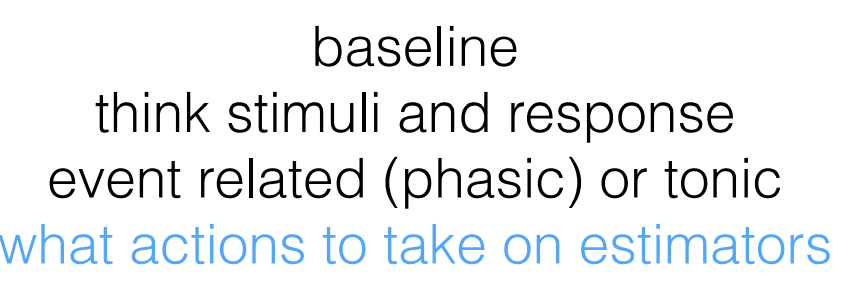
Additional Literature and references
- Bardram and Frost 2016: The Personal Health Design Space (alternative link).
- Gravenhorst, et al. 2015: Mobile Phones as Medical Devices in Mental Disorder Treatment
- Cuttone, Bækgaard, Sekara, Jonsson, Larsen, and Lehmann: SensibleSleep: A Bayesian Model for Learning Sleep Patterns from Smartphone Events
- R.W. Pichard: Affective Computing (original article)
- Affective Computing Overview (wikipedia)
- Onnela, J.P.: Harnessing Smartphone-Based Digital Phenotyping to Enhance Behavioral and Mental Health
- Affectiva: Facial Emotion Recognition (web site) or app link Android or iOS
- UX Design Collective, 2017: Design with Gestalt theory
- Becca Kennedy, 2017: Four psychology principles every UX designer should know
- James C Mundt, Adam P Vogel, Douglas E Feltner, and William R Lenderking. 2012. Vocal acoustic biomarkers of depression severity and treatment response. Biological psychiatry 72, 7 (2012), 580–587
- Maharjan, R., Bækgaard, P., & Bardram, J. E. (2019, September). Hear me out” smart speaker based conversational agent to monitor symptoms in mental health. In Adjunct Proceedings of the 2019 ACM International Joint Conference on Pervasive and Ubiquitous Computing and Proceedings of the 2019 ACM International Symposium on Wearable Computers (pp. 929-933).
- Maharjan, R., Rohani, D. A., Bækgaard, P., Bardram, J., & Doherty, K. (2021, July). Can we talk? Design Implications for the Questionnaire-Driven Self-Report of Health and Wellbeing via Conversational Agent. In CUI 2021-3rd Conference on Conversational User Interfaces (pp. 1-11).
